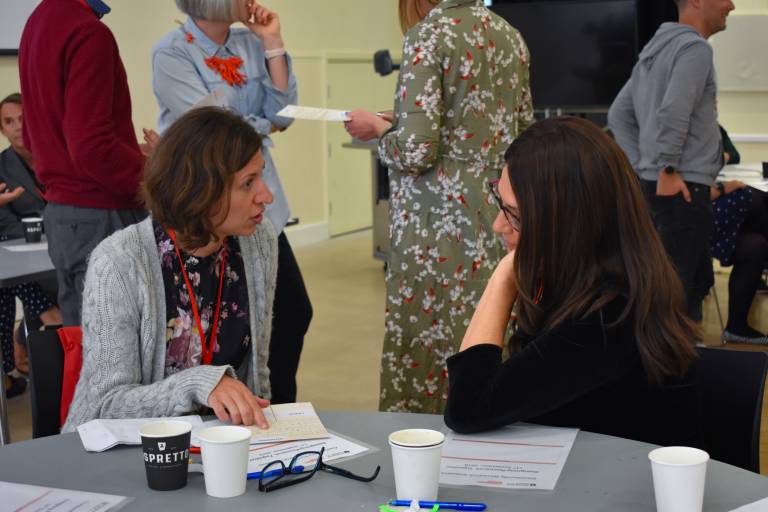Fostering research collaborations that benefit communities and students
A UCL Students’ Union service links Master’s students with charities and community groups and is supporting sustainable research collaborations that bring benefit to all.

30 June 2022
Every Master’s student faces the challenge of finding a meaningful topic for their dissertation. At the same time, many local community organisations with limited resources want help to develop and maximise the impact of their work.
In 2018, to improve the experience of students and encourage links between UCL and local communities, the Students’ Union UCL Volunteering Service and colleagues – with funding from the UCL Office for the Vice-Provost (Education & Student Experience) – established the Community Research Initiative for Students (CRIS).
The service provides UCL master’s students with advice and coaching, skills development, networking opportunities, and support with building a partnership.
“Many students feel excited about their topic and want to do something important that goes beyond their course,” explains Anne Laybourne, CRIS Manager. “We wanted to find a way to connect students with the richly diverse and knowledgeable voluntary and community sector, to listen to what new knowledge would be most useful to them and to design a mutually beneficial dissertation project to meet this need.”
““CRIS helps break down walls between UCL and local communities. It offers great support and helps design research that helps local communities.”
CRIS helps the university contribute to positive social change through creating and disseminating new knowledge. It also helps to encourage more equitable involvement in research, ensuring that the voices and expertise of people living near UCL’s campuses are heard.
“We wanted the service to act as a bridge into the university for citizen groups and local people and at the same time provide a bridge out of the university for academics and students to share their perspectives and skills,” Anne adds.
Since the scheme started, 713 students from more than 100 different Master’s courses have signed up CRIS. Of these, more than 200 students have gone on to have conversations with leading local experts on the ground and many have been able to develop collaborations with local organisations to develop their research ideas.
Projects range from working with a voluntary group and local council to design safer, more accessible parks in Tottenham, to working with the charity Brook to help overcome the barriers young people face in accessing sexual health services.
“The support we offer to students and the relationships we broker between students and community groups provide a platform for all parties to get creative and develop valuable research-based solutions to their specific challenges,” says Anne.
“But it’s important to remember that we may also only plant a seed for students. The end point for us is not necessarily the final collaborations, but those first tentative steps a student takes with us to consider a more power-sharing participatory approach to research.”
“CRIS helps break down walls between UCL and local communities. It offers great support and helps design research that helps local communities,” adds Lucy Lawrenson, Masters student in Environment, Politics & Society.
Image Credit: Josephine Mizen and Ben Courtney
 Close
Close


